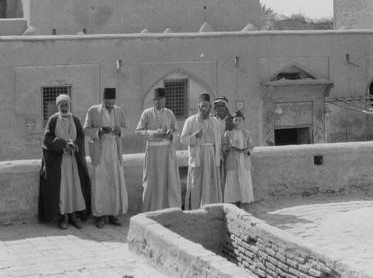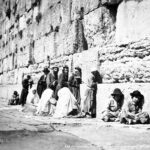During 1950-1951, over 90% of Iraq’s flourishing Jewish community of 130,000 emigrated to Israel. This is common knowledge, but what is scarcely known outside Israel is how or why this sudden emigration took place.1
Even inside Israel, the story is not familiar to the general public. It was first revealed in part in 1966 when Yehuda Tagar, a clerk in the Foreign Ministry in Jerusalem (who afterwards became an attaché at the Israeli Embassy in London) broke silence about his part in the affair.
In 1960 Tagar, who had been an officer in the Military Government in Acre, was sent as a covert Zionist envoy to Iraq; he was recognized by an Arab refugee and caught.2 Sentenced to life imprisonment, he was nevertheless later released.3
On May 29, 1966, the independent weekly magazine Ha’Olam Hazeh (edited by Uri Avnery) published an account of Iraqi Jews’ emigration based on Tagar’s testimony. Then on November 9, 1972, The Black Panther magazine in Jerusalem (edited by Kochavi Shemesh) printed the full story. Middle East International carried a reprint of the Black Panther article, that tells the story of the Zionist terror activities in Iraq and the subsequent effect on the lives of the Iraqi Jews.
At the time of the establishment of the state of Israel, Iraq’s 130,000 Jews were a highly educated community, engaged primarily in business, the professions, and trades. In Baghdad, for example, there were 10,772 pupils in Jewish community schools and 2,500 in various private schools.
But by the end of 1951, after two years of Zionist efforts to force them to immigrate to Israel, over 90% of this community had left their native land. The results were devastating, both on the few Jews remaining in Iraq and on those who had departed. Many national institutions had been in Jewish hands. Most of the banks and big stores were owned by Jews, and even the poorest of them had a higher standard of living than the average Iraqi. Their coming to Israel involved great suffering, as most of their possessions were left behind in Iraq.
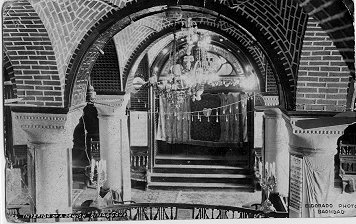
(By June of 1959, 20% of the Iraqi Jews who immigrated to Israel were still in ma’abarot, which were hastily-built temporary tent villages, suggesting lack of concern for the immigrants once they had arrived in the Holy Land.)
Descendants of those who were exiled in Babylon after the destruction of the First Temple, they formed a highly educated, thriving community. Representation of the Jewish community in Parliament was safeguarded by the Constitution, and there was at least one Jewish minister in nearly every Iraqi Cabinet.
The community had never experienced pogroms or persecution on the scale common in Eastern Europe. There had been one pogrom; this was in 1941 when the pro-Nazi Rashid al-Kailani was Prime Minister. On the other hand, the community had strong ties with Palestine – especially Jerusalem – since Iraq and Palestine had both formed part of the Ottoman Empire. Many Iraqi Jews went to settle in Palestine between the two World Wars.
At the time of the creation of the state of Israel, the Zionist movement in Iraq had a fairly widespread underground organization which operated under the general name of “The Movement.” Israeli agents and local members of the Movement organized a network to smuggle Iraqi Jews into Palestine. Caravans of immigrants went through the desert to Transjordan.
Although these immigrants were few in number, they included mostly young people. Many young Jewish intellectuals had ties with the Iraqi Communists, and thought it their duty to struggle for a change in the structure of Iraqi government and society. In return, when the War of Independence broke out, the Iraqi Communists held a demonstration in Baghdad calling for the right of the Jewish people to their own independent country.
Illegal immigration into Israel caused some clashes between the Iraqi police and the caravan guides. Suddenly, at the Jewish Purim feast in March 1950, the authorities made a surprising announcement. Any Iraqi Jew wanting to leave Iraq would be allowed to give up his citizenship voluntarily. The official explanation which appeared in the press was: “The encounters between the police and groups of emigrants show that some Iraqi Jews do not want to live in this country. In escaping, they give a bad name to Iraq. Those who do not wish to live among us have no place here. Let them go.”
The head of the government at the time was Tawfik el-Suweidi. After the 1958 Revolution, he was put on trial and accused of treason. One of the charges was: “Aiding the state of Israel by helping 100,000 Iraqis to become Israeli citizens.”
But on that day in 1950 Iraqi newspapers wrote: “Today the Jews are celebrating two festivals — Purim and the granting of permission to emigrate to Israel.” Police officers appeared at synagogues and declared themselves ready to answer any questions connected with the government announcement. They explained that all a Jew had to do in order to leave peacefully and travel to Israel was to sign a form prepared for the occasion by the government. But there was little response. Iraqi Jews were afraid it was a trap to discover who were Zionists, and Zionism was a serious crime under Iraqi law.
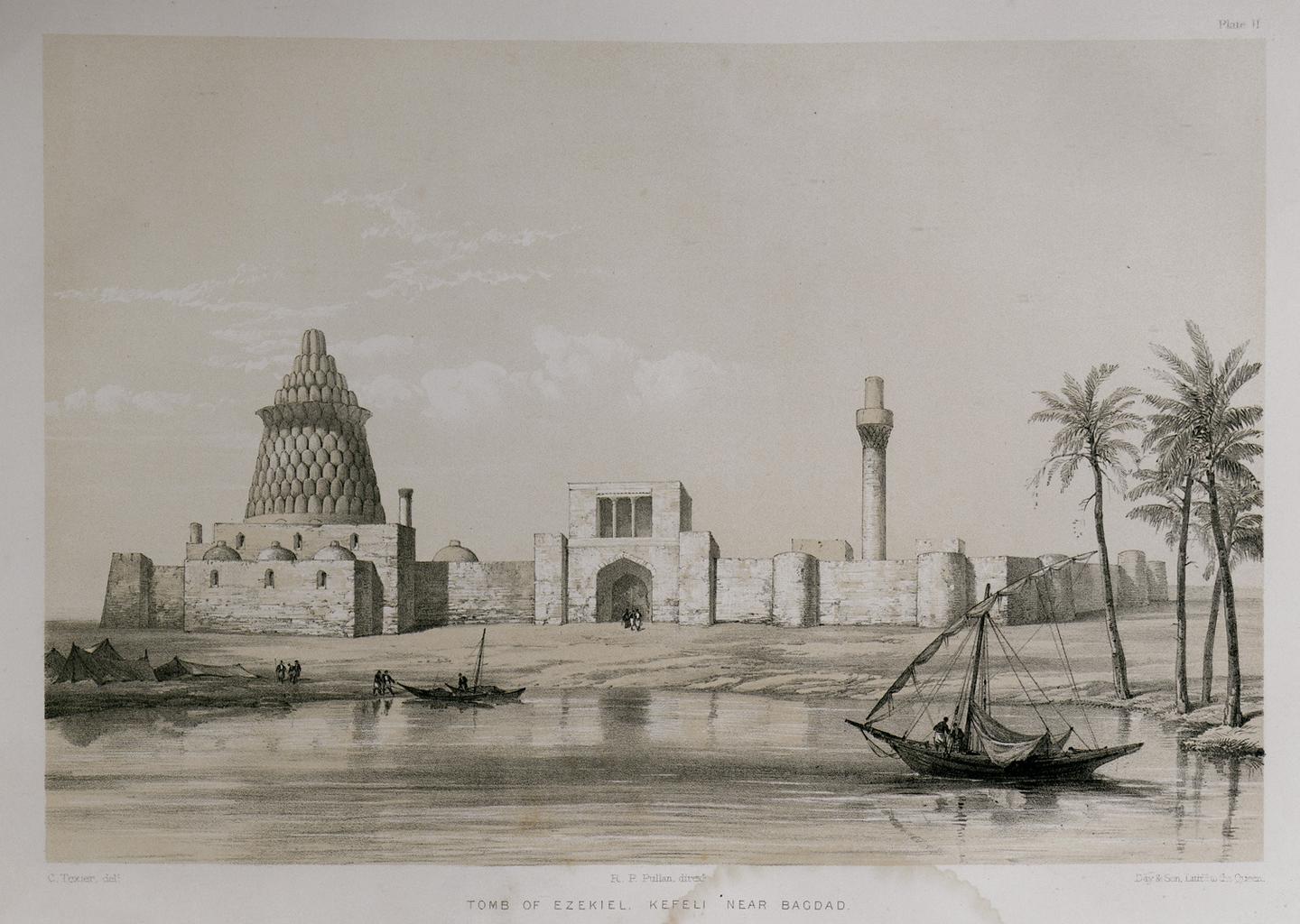
A month elapsed and Passover came. On the last day of Passover, the Jews of Baghdad went to walk along the Tigris in accordance with their custom, to celebrate the “Song at the Sea.” At one moment there were 50,000 Jews – men, women and children – on the esplanade. By 9 p.m. their numbers had decreased as many had gone home to dinner, but el-Nawas Street was still crowded with Jewish pedestrians.
A number of young Jewish intellectuals were sitting inside the Dar el-Bidah cafe. Suddenly, a small object was thrown from a passing car and exploded on the pavement. By chance no one was hurt, but the explosion echoed throughout Iraq.
The shock particularly affected the Jewish community, who felt that Iraqi terrorists were trying to assassinate Jews. Memories of Rashid el-Kailani’s time were recalled and some started saying; “It’s better to go to Israel.”
On the following day, crowds of Jews besieged the police stations which had been appointed to register their wish to give up their citizenship. They were mostly from the poorer classes who had nothing to lose. To deal with the rush, the police asked the heads of the Jewish community to turn their synagogues and schools into registration offices, and the big Ezra Dawud synagogue was chosen for this purpose. Police officers and volunteer clerks (members of The Movement) worked day and night in shifts on the registration. The Jewish community set up a special kitchen to feed the policemen and their helpers so that they could continue their work without stopping.
When the first scare had passed, it was evident that not every Iraqi Jew wanted to leave. Only about ten thousand Jews had registered as wanting to go. Moreover, there were very few flights to Israel. Only one plane came which took 150 Jews to Cyprus and then to Lydda. Iraqi Jews stopped rushing to give up their citizenship, and the police and registration clerks were left without work.
Suddenly, a second bomb exploded – at the U.S. Information Center. This was a large, pleasant place where many young people – especially Jews – used to sit and read. In summer they were given cold drinks. This time the theory was also that Iraqi extremists had placed the bomb which only by chance did not hurt anyone. Once again, the Jews started rushing to the Ezra Dawud synagogue to register for emigration. But the panic lasted only a short time, and even fewer registered for emigration than before. The year 1950 ended, and March 1951 – the date when the right to relinquish citizenship expired – was approaching.
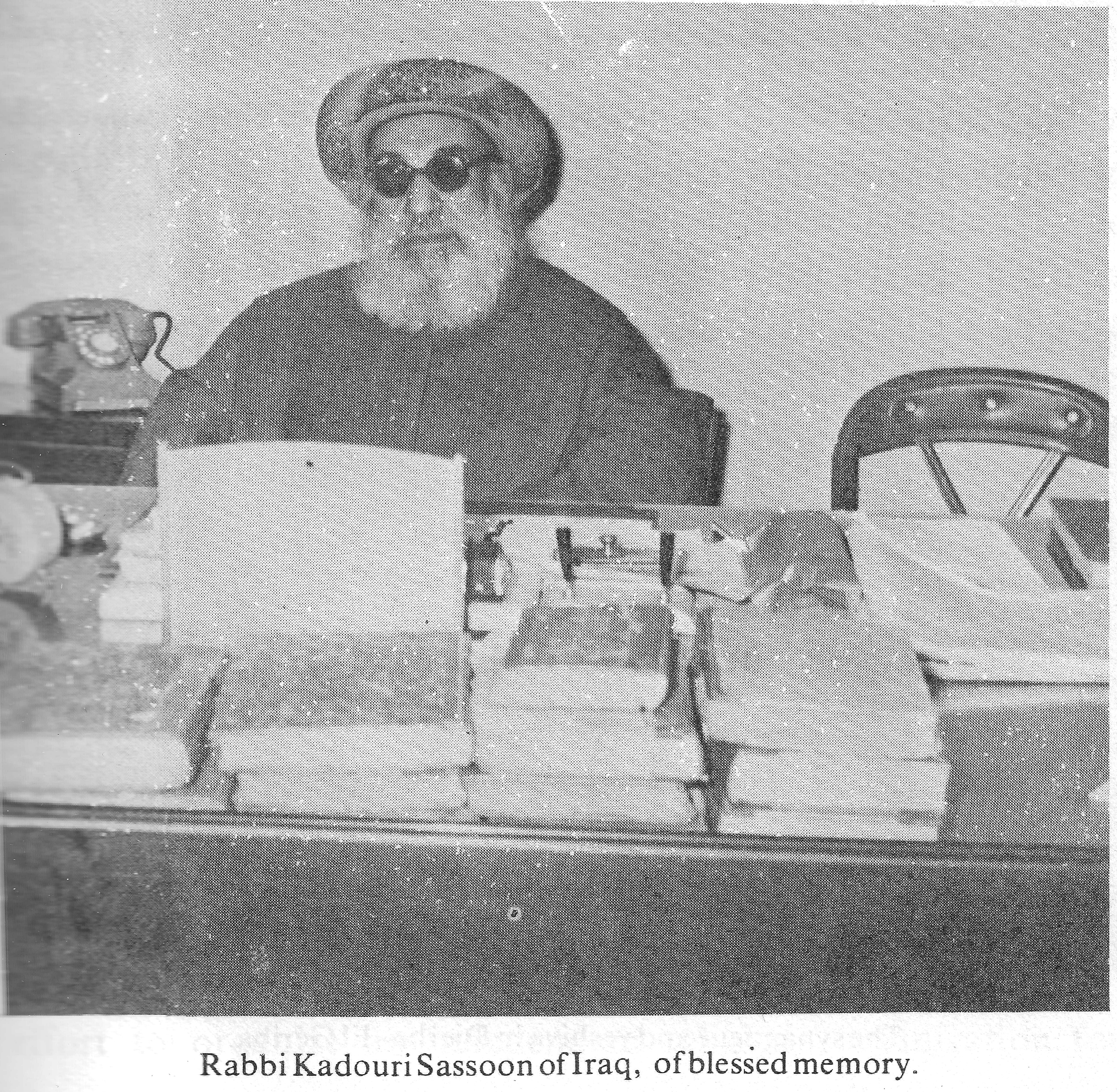
Then a third bomb exploded; this time there were casualties. It was at the Massaude Shemtov synagogue which was being used as an assembly point for Jews whose turn had come to leave Iraq. They could be taken by truck directly to the planes in order to avoid being too conspicuous at the airport.
On that day in January 1951, the Massaude Shemtov synagogue was full of Kurdish Jews who had been brought from Sulaimaniyah in the north and were getting ready for their flight. Outside, a Jewish boy was selling cakes to curious onlookers. When the bomb exploded, he died immediately and a Jew standing beside him was badly hurt in the eyes.4
This time, the Iraqi Jews had no doubts: an anti-Jewish organization was operating against them. It would be better to leave Iraq while there was still time. Again, the long queues began to form, and on the last night before the deadline expired Jews were paying up to £150 or even £200 for their names to be included on the list before it closed. When the registration ended all the Iraqi Jews, except for about 5,000 had registered to emigrate to Israel.
After some days, the government decided on a new step concerning Jews who were emigrating to Israel. The cabinet, headed by Nuri el-Said, held a secret meeting and Parliament did the same. It was on a Saturday when Jewish businesses and most banks were closed. Even the telephone lines between Parliament and the city were cut because the government did not want the subject being discussed to leak to any Jewish friends of the deputies. The item on the agenda was a bill for the confiscation of the property of any Jew who had abandoned his citizenship and; registered for emigration to Israel.
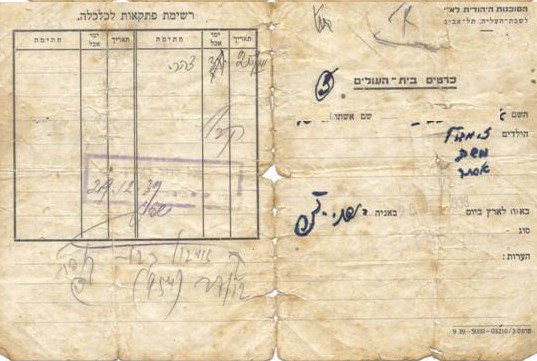
The bill, which immediately became law, required all the banks to cease operations and every Jewish business to close its doors. Anyone caught taking goods from a Jewish shop became liable to seven years in jail. The property of all those who had abandoned their citizenship was confiscated and put in the hands of a government custodian; emigrants could only take £70 with them. All those who had not given up their citizenship had to present themselves at a new registration office to obtain a new identification card. They would continue to be regarded as citizens with equal rights, and they could even have passports and travel abroad. But they had to come back within three months or have their citizenship annulled. The five thousand Jews who retained their citizenship could operate their businesses again without restriction.

One more noteworthy element in the story is testimony by an Iraqi lawyer, later a resident of Tel Aviv, quoted in Genocide in the Holy Land, pp. 517-8: “After the first bomb was thrown at the Dar el-Bidah cafe, many rumors began to circulate that the communists were responsible. But, at 4 a.m. on the following morning, leaflets were already being distributed among the first worshippers at the synagogue [emphasis added]. These warned of the dangers revealed by the bomb-throwing and recommended the Jews to come to Israel.
“Someone who found this strange was Salman el-Biyat, the investigating judge for South Baghdad. He said that the distribution of the leaflets at such an early hour showed prior knowledge of the bombing, and he instructed the police to investigate on these lines [emphasis added]. They became convinced that those who threw the bombs were Jews who were trying to hasten the immigration.”5
Part Four will examine whether today’s Jewish Agency is playing a provocative or reactive role.
How does Jewish Agency know 1 million Jews ‘expected’ imminently to flee Diaspora? Analysis
Aliyah wave imminent? Part 2: Operation Suzanna and Israel’s Golden Rule
Footnotes:
- 1. This installment relies in large part on Rabbi Moshe Schonfeld’s research brought in Genocide in the Holy Land, published 1980. Jewish Iraqi scholars and activists in Israel were consulted for corroboration. ↩︎
- 2. Three months after the deadline for the registration of emigrants, a man entered the largest general store in Baghdad — Orosdibak. One of the salesmen, a Palestinian refugee, turned white when he saw him; he left the counter and ran out. He called two policemen and told them: “I just recognized the face of an Israeli.”
Shortly after the War of Independence, the salesman had been a cafe-waiter at Acre and he knew Yehuda Tagar, the man he had recognized, from the time he worked there. Yehuda, who confessed to being an Israeli although he explained he had come to Baghdad to marry a Jewish Iraqi girl, was not the only one who was arrested. The police also caught Shalom Tzalah, a young man from Baghdad who was in charge of the arms cache of the Haganah. He broke down during his interrogation and took the police from synagogue to synagogue, showing them where the weapons which had been smuggled in continually since World War II were hidden. He paid for this with his life after his trial.
Fifteen more were arrested. The prosecutor charged that they were members of the Zionist underground, that they had arms caches and that it was they who threw the three mysterious bombs. He claimed that their aim was first to frighten the Iraqi Jews to drive them to emigrate to Israel and then, when the whole community had moved, to use their stores of weapons and bombs “to blow up Baghdad.” The accused were defended by Iraqi lawyers. Two were condemned to be hanged, and the rest were given long jail sentences. ↩︎ - 3. Former Or Yehuda Regional Council member Kaduri Eloyah was of the opinion that Yehuda Tagar’s arrest was unnecessary: “Tagar wasn’t arrested the first time he was recognized by the Palestinian refugee. There were several Jews on the staff of the Orosdibak store who were able to confuse the refugee to enable Yehuda to get out of the place. He should then have gone into hiding and left Iraq as soon as he could. Instead, he came Orosdibak a second time, a week later, and this time he brought with him the head of the emigration movement, Mordechai ben Porat. It was then that the refugee ran out to call for the police, and Yehuda was arrested. Ben Porat was also arrested, but he succeeded in convincing the police that he didn’t know Tagar and was set free on a £2,000 bail. He jumped his bail and came to Israel.” ↩︎
- 4. Kaduri Salim lost his right eye at the door of the Massauda Shemtov synagogue. He remained in Iraq for three months after leaving the hospital until his turn to leave for Israel arrived. Since then, all his efforts to obtain compensation failed. He claimed: “I was hurt by the bomb which the court of law established was thrown by The Movement. The Israeli government had to give me compensation.” But the Israeli government did not recognize its responsibility for the Baghdad bombs and, in any case, does not recognize him as having been hurt in action. “I’m ready to sacrifice myself for the state,” he said, “but when my situation at home is bad, when my wife wants money and there isn’t any, what’s my sacrifice worth?” ↩︎
- 5. Although their coming to Israel was not voluntary, the Iraqi immigrants tried to integrate themselves into the new society. This is shown by the disintegration and scattering of the community. Unlike the Moroccan Jews, they did not feel any need for the creation of a separate community within the country because they thought Israel was meant to be theirs.
But the suspicions that were aroused at the time of their immigration were realized. One of the most splendid and wealthy communities was destroyed, its members were impoverished, and most of its descendants became undereducated.
A community that controlled most of the resources of Iraq – one of the most developed states of the area – was turned into a subject population, discriminated against and oppressed in every way. A community with its own high ethical values was caught in the spokes of Ashkenazi culture which is totally foreign to them. A united and cultured community began to produce delinquents of every kind in Israel. Its fine, well-bred children were all crippled.
Chief Rabbi Sasson Khadoury was able to keep all the twenty-six synagogues intact, but only one remained in use. Forty-nine of the fifty schools once run by the Baghdad community were closed.
The transitional period in the new country caused a long interruption of their children’s studies, with the emphasis on learning the language and acclimating themselves to the new life. While the parents’ financial problems prevented them from tending their children’s education, teams were sent to the transit camps to indoctrinate the new immigrants in Zionism.
What happened to the Iraqi Jews once they reached the Holy Land is further related in an article published in the Israeli newspaper HaModia (October 5, 1950), the official organ of the Agudath Israel in Israel:
We are again witnessing a terrible crime committed openly by the Jewish Agency for Israel.
Children from Iraq who arrived recently in Israel were put under the supervision of Agency counselors who started to eradicate all the religious feelings of these children who up to that moment had been strictly religious.
Children from deeply religious families were taken to Dafna and other kibbutzim of the HaKibbutz HaMeuchad movement and there, counselors took over those unfortunate children. Children who always prayed and were accustomed to living according to the precepts of the Jewish religion are now forced to renounce their religion and hide all semblance of religion because they fear the counselors.
In this way, already 1,300 boys and girls were alienated from our religion. The counselors were obviously trained for this purpose. They do not permit the children to pray; they force them to violate the Sabbath. The children are forced to listen to long speeches whose only purpose is to convince them that there is no G-d or holiness of the Torah. No means are beneath these agents of the Jewish Agency.
Girls who were educated along the lines of modesty and whose parents had sacrificed themselves to observe Jewish family purity, are now being especially thrown into leftist kibbutzim and persuaded that in the Holy Land there is no way and reason for a Jewish girl to live a chaste life.
If there are children who beg that they should be permitted to pray and to continue their previous way of life, they are transferred to a special place where pressure and persuasion are used on them.
All these activities can be laid to the credit of Mr. Zerubabel, the head of the Middle East Department of the Agency who serves as executioner for this purpose.
He still prepares the groundwork in Iraq and Persia, where he is sent by the Jewish Agency in order to organize aliyah. The news is spreading among Jews there that Israel is no place for religious Jews.
It is necessary that an end be put to these shameless things which put to shame the good name of the state of Israel. Religious Jewry cannot be silent when the Teheran scandal is repeated in even greater dimensions.
Zionist harassment of the few remaining Jews in Iraq did not cease, prompting Chief Rabbi Sasson Kadouri to send this letter written on April 28, 1971 to S. E. U. Thant, Secretary General of the Organization of United Nations:
Mr. Secretary General,
Israel continues to conduct a virulent campaign against Iraq and against the Iraqi citizens of the Jewish religion. In this regard, I would like to assure Your Excellency that there is a considerable difference between Zionism and Judaism. Zionism is a political and racial ideology. It is a colonial and expansionist movement which contradicts the essence and the teachings of Judaism, one of the three revealed religions of the world. Zionism has too often disserved Judaism and its experts in deforming its ideas and its history and in appealing to violence against the Jews to force them to emigrate to Israel.
Your Excellency permits me through this occasion to witness before him that all the Iraqi citizens of Jewish faith profess, with regard to Iraq, sentiments of loyalism which they will never allow to be corrupted by Zionism, which would like to win them over in a whirlpool of double allegiance.
The Jews of Iraq are treated in the same manner as the other citizens in fact as well as in the law, and the allegations according to which the right to move freely to the interior of the territory and to leave the country would be refused them are not based in fact.
I ask your Excellency to be willing to take this present declaration to the attention of all the organs concerned of the UN, notably the Commission of the Rights of Man.
I seize this occasion to assure Your Excellency of my highest esteem. ↩︎



